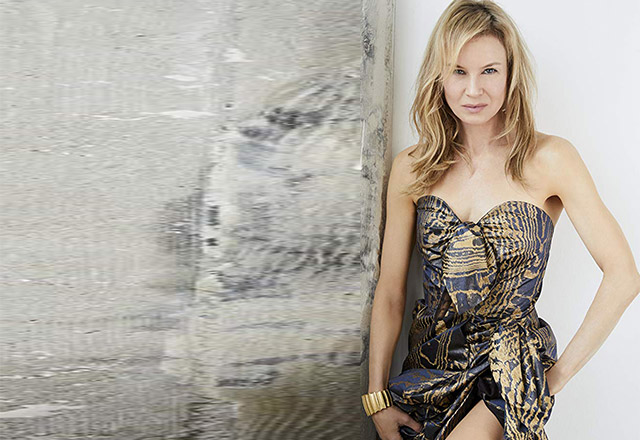
Renee Zellweger is enjoying what could well prove to be the beginning of a brilliant new chapter in her life. In the course of the past decade, she notoriously spent six years in self-imposed exile from Hollywood owing to accumulated acting fatigue: “I was bored with myself after 25 years of living other peoples’ lives and I needed to grow as a person.”
Her time away from the limelight renewed her spirit and gave her some much-needed peace of mind. Said Zellweger: “It was important, that time. You’re not in people’s consciousness anymore, so they don’t immediately make the connection. It’s a quieter life, and I love it.”
Today, at 50, Zellweger is back in action with Judy, a musical biopic in which she plays the title role of Judy Garland, the legendary singer/actress who rose to fame as Dorothy in The Wizard of Oz but would die of a drug overdose at 47. Zellweger’s performance proved so mesmerising at its North American premiere in Toronto recently that she received the longest standing ovation in the history of that city’s film festival.
Judy picks up the life of Garland in the winter of 1968, when she was broke, homeless, unemployed, and addicted to barbiturates and alcohol. She was also distraught over a bitter custody battle over her two children with ex-husband Sidney Luft. It was at that point that she accepted to perform a five-week run of sold-out concerts at London’s The Talk of the Town nightclub so that she could solve her financial problems and thus make a better case to retain custody of her children. Some nights the booze and pills forced her to cancel, but on most nights, she brought down the house.
“I think one of the wonderful things about telling this story about this stage of her life is that it shows it was not completely tragic,” Zellweger says. “She was hopeful, and she got so much joy out of connecting with her audience and performing. She never gave up. Never.”
During the course of the film, we see Zellweger singing most of Garland’s classic songs herself, a remarkable achievement given the latter’s powerful voice and distinctive tremolo. Even better, Zellweger nails all of Garland’s tics, gestures, and stage persona, and does so seamlessly without any trace of mimicry.
No wonder that critics are already anointing Zellweger as early Oscar favourite in what would be a fitting triumph for a woman whose career was seemingly on the verge of extinction after rumoured plastic surgery on her eyes in 2013. But while she may have looked odd afterwards, today Zellweger rocks her look – fresh, youthful, and surprisingly natural. And, sorry, but we have to say it: this is the year of Zellweger’s Renée-ssance!
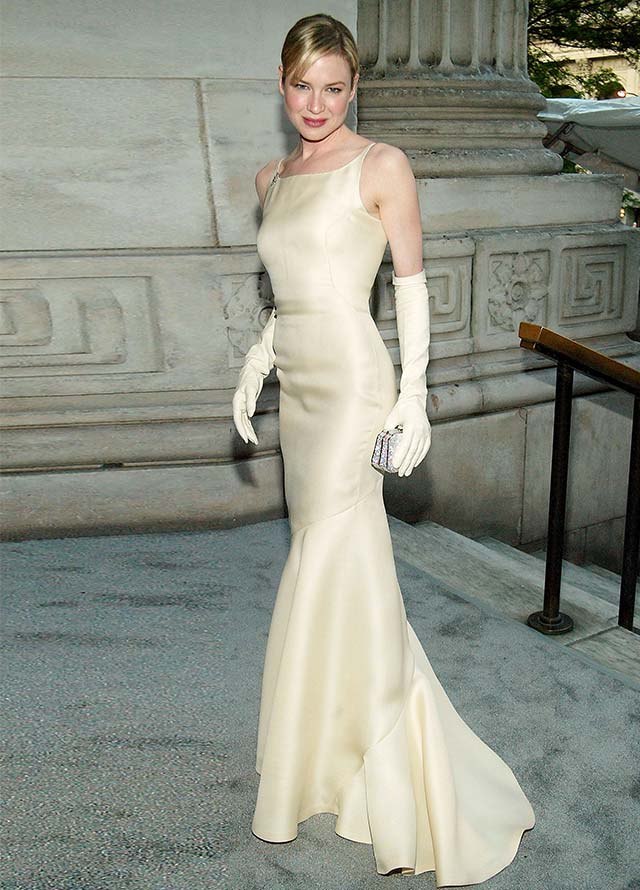
While researching and then playing Judy Garland, what stood out about her the most?
RENEE ZELLWEGER: She was amazing. She could hit ’em back with the best of them. She was a dame. This film fills in the blanks between public conjecture and [Garland’s] critics’ omissions.
Was it at all daunting for you to take on the added pressure of playing one of the most legendary and beloved singers of all time?
RZ: I tried not to think too much about how adored Judy is and has been though the generations and how she is an icon for the ages. I tried to take that off the table and instead look at the film as an exploration of the human experience on the other side of stardom. Otherwise I would have just run away! [Laughs] So I let myself be propelled by curiosity and admiration.
And [director] Rupert and I worked on building the character for quite some time beforehand to understand her emotional journey at this time in her life where we’re not sure whether she’s going to succeed.
How did you handle the obligation that you must have felt towards portraying her as authentically as possible?
RZ: It’s a different sense of responsibility that you feel to represent things as accurately as you can by digging through the historical and public record of the legacy of Judy’s life. In reading those things and considering the source, I learned a little bit about the difference between the person’s true history and the public account and tried to find the balance in between.
Of course, there are many parameters that are non-negotiable that have been said on the public record and through Judy’s own words and things. So, you feel the need to represent that as authentically as possible.
But the rest was pretty difficult to know because we’re talking about very private moments that haven’t been shared and it’s sort of an interpretation of what the experiences of the person who was living under those circumstances at that time might be like.
“Acting is my bliss”
What kind of effort went into your singing preparations. That was obviously another major challenge for you?
RZ: I had a fabulous voice coach who helped me build up my vocal power because at the beginning of the process I couldn’t sing those songs because I didn’t have the strength to do it…But in the end I performed most of the songs live on set.
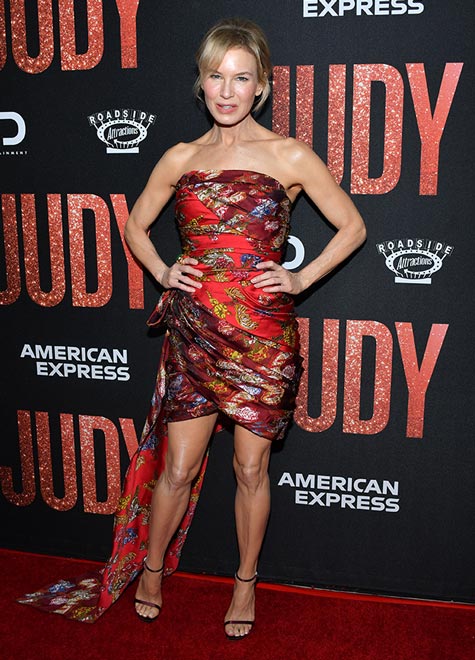
Can you describe how you felt when you sang Garland’s classic Somewhere Over the Rainbow in the film?
RZ: Oh, that was quite a day…It touched me very deeply. It was the end of the live performance sequences that I had been sharing all week with the 300 actors who were playing the audience. It was the final moment of celebration that was shared between us and all of our affection and admiration for Judy felt very alive at the moment. You find yourself thinking of what that song meant to her at that time in her life and the nostalgia we all feel about it changes form as we go through our lives.
Did you come away from making this film with a different or heightened appreciation of Garland?
RZ: I’m sad to say that I took her for granted, like a lot of people you love in your life, she was just always there. Of course she was extraordinary and deserved that place in history she carved out for herself among the greatest of all time, but it wasn’t until we did this film that I properly came to appreciate how truly extraordinary she was by learning about the circumstances she was dealing with in that third chapter in her life.
“I was bored with myself after 25 years of living other peoples’ lives and I needed to grow as a person.”
What kind of influence do you think Judy Garland has had on other singers who followed since her time?
RZ: The combination of gifts that she was born with are just indescribably important in terms of what she inspires in other artists. Why she couldn’t handle her fame? I don’t know …you see stories like Amy Winehouse and you just wonder why?
It’s one thing to be born with this God-given mix of talents that are one in a million years. But it’s quite another thing to carry on and navigate your life around difficulties. Learning about that and watching this is what sets her apart, it’s not just iconic, but heroic, really, and I was falling more deeply in love the more we learned about her as we went through.
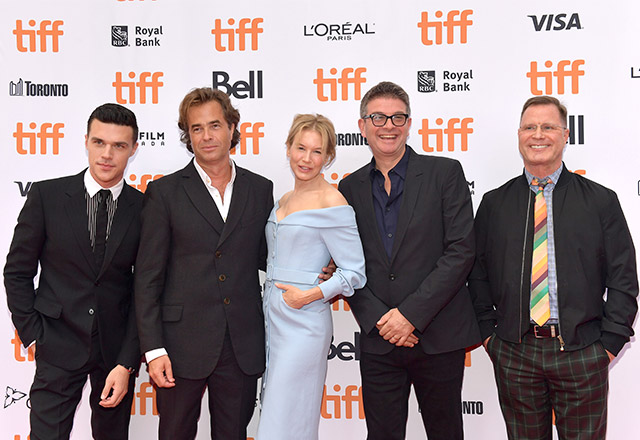
How did you approach her stage persona while she was singing?
RZ: I tried to intellectualize it rather than look at it from an emotional place because I think that would have been a little too…daunting. So just breaking it down in terms of style, pitch, where her register was at this particular time and the damage and all that stuff. And then it just took Rupert insisting again and again, ‘No you really do need to sing this.’”
What was your perspective on looking at the performer and then trying to see the person behind the performance?
RZ: I was assuming there was a persona in the chair when she has the armour on and doing interviews and where she’s presenting a part of herself that she wants to share with the world.
Then there’s the Judy when she’s on stage and there’s a quality that is starry and sparkling and very generous and loving in Judy’s case. That’s also a performance. I was curious about the person behind the spotlight when she goes home at night and she takes off the armour and the sparkling dress and what her life might be like under the circumstances she was grappling with at that time in her life.
“This film fills in the blanks between public conjecture and Judy’s critics’ omissions.”
During the time you spent away from the film business, did you ever thought of retiring for good?
RZ: I never once thought I’d never do it again because I love acting. It’s my bliss. I appreciate it differently now because I’ve figured out how to bring the peace I have in my personal life into my professional life. It’s not the same chaos, because I’ve learnt what I can take on and when it’s too much.
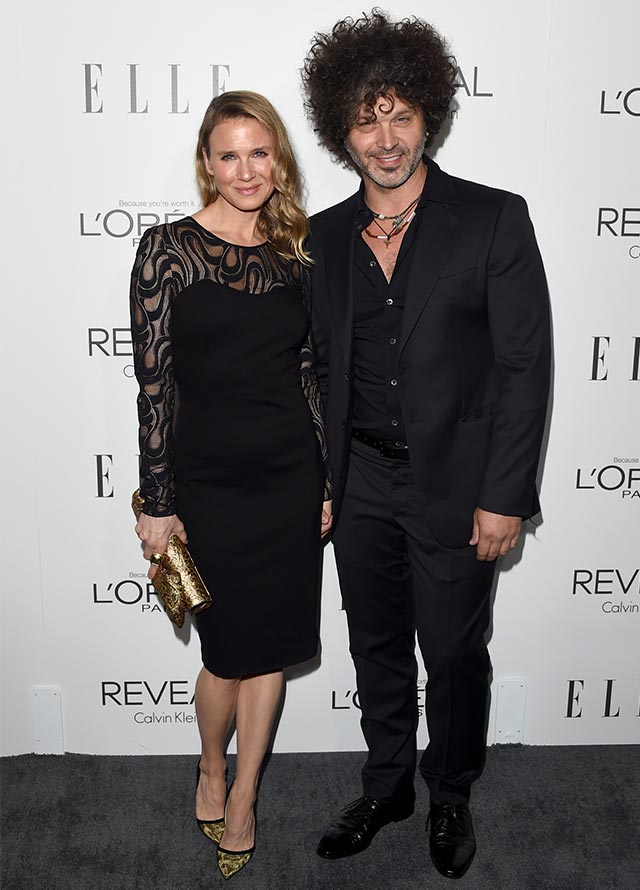
INTERVIEW BY WENN
PHOTOGRAPHS: GETTY![]()











































